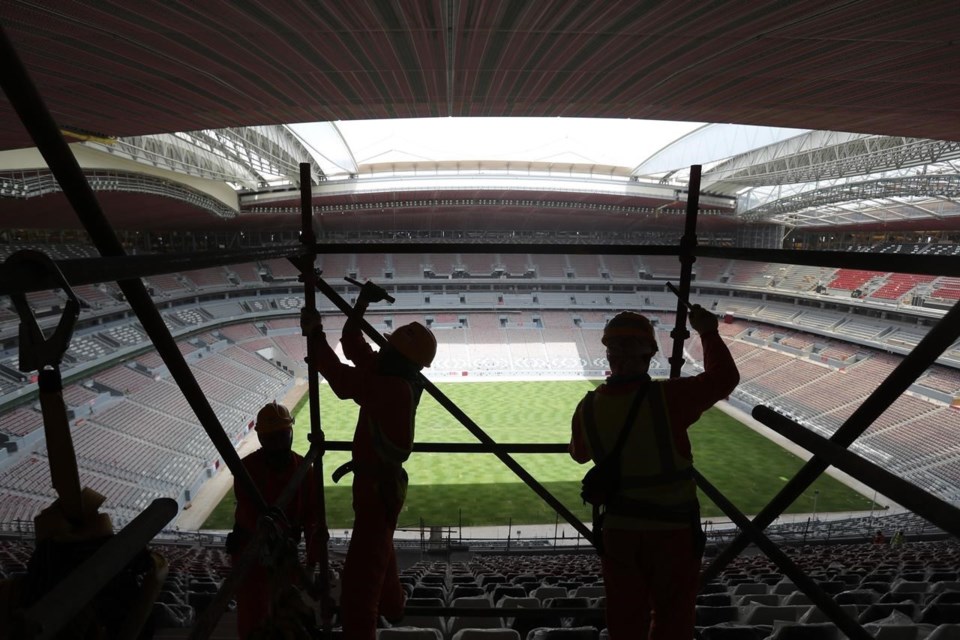FIFA came under pressure on Thursday to publish a long-awaited review into compensation for workers who helped to deliver the 2022 World Cup in Qatar.
Human rights group Amnesty International urged FIFA to make public the findings of an independent review it said was delivered five months ago.
Amnesty said hundreds of thousands of migrant workers “suffered grievously” while building state-of-the-art stadia and infrastructure, often in searing heat, to enable Qatar to host a World Cup that FIFA president Gianni Infantino described at the best in tournament history.
Last November, Amnesty urged Qatar and FIFA to do more for migrant workers, particularly in terms of compensation.
“This delay only prolongs the suffering of families who lost loved ones, and workers who were abused, while delivering FIFA’s flagship event," Amnesty head of labor rights and sport Steve Cockburn said. "A commitment to remedying the abuses related to the last World Cup would be a vital step towards FIFA finally fulfilling its human rights responsibilities and could be life-changing for workers and their families.”
FIFA said the report was still being reviewed by stakeholders.
“Generally speaking, international experts and trade union representatives who have assessed and collaborated in the labor rights programme for FIFA World Cup workers have repeatedly testified to the robustness of this program and recognized that major steps forward have occurred in the labor rights sphere,” it said in a statement to The Associated Press.
With an estimated population of less than 3 million and only around 300,000 citizens, Qatar relied on migrant workers to build more than $200 billion worth of stadiums and infrastructure after it was controversially awarded the 2022 World Cup.
The treatment of foreign workers, some of whom died in the process of delivering the tournament, was the focus of criticism for more than 10 years.
As well as concerns about the potentially hazardous construction industry, there was criticism of the kafala employment system, which previously gave employers control over whether migrant workers could change jobs or even leave the country.
Reforms have been introduced following the World Cup but Amnesty has said migrant workers still face abuses.
Saudi Arabia is set to host the 2034 World Cup as the sole bidder.
“FIFA cannot simply move on to other tournaments leaving suffering in its wake, not least when the opportunity to finally put things right is within its grasp," Cockburn said.
___
James Robson is at https://twitter.com/jamesalanrobson
___
AP soccer: https://apnews.com/hub/soccer
James Robson, The Associated Press



